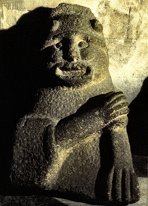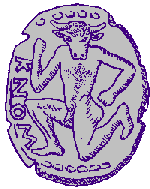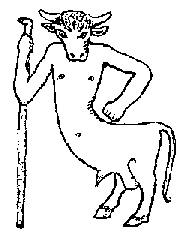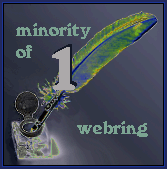zen santoka haikai haiku zen santoka haikai haiku
zen santoka haikai haiku
zen santoka haikai haiku zen santoka haikai haiku zen santoka haikai haiku
WEEDS, FALLING RAIN
a selection of Zen Haikai by
TANEDA SANTŌKAface at the bottom of the world
i
am and am not:
fragments of rumi
dispatches from the war against the world
french poems in honour of jean genet
gloss on rilke's ninth duino elegy
jewels and shit: poems by rimbaud
villon's dialogue with his heart
vasko
popa:
a shepherd of
wolves ?
genrikh sapgir:
an ironic mystic
TRANSLATIONS
BETWEEN
POETRY AND PROSE
the maxims of michel de montaigne
ESSAYS & MEMOIRS
ancient violence in the amazon
'original
sin' followed by
crippled consciousness ![]()
a gay man's guide to soft-willy sex
nice
men and
suicide of an alien
the most terrible event in history
SHORT STORIES
ESSAYS & MEMOIRS
'original
sin' followed by
crippled consciousness ![]()
a gay man's guide to soft-willy sex
londons
of the mind
& dealing death to the caspian
a muezzin from the tower of darkness
satan
in the groin
womb of half-fogged mirrors
a holy dog and a dog-headed saint
vacuum of desire: a homo-erotic correspondence
PHOTOGRAPHS

field guide to megalithic ireland
|
new versions by Ōkami zen santoka haikai haiku zen santoka haikai haiku zen santoka haikai haiku Santoka, Taneda (Taneda Shoichi) lived from 1882 until 1940, and his life hinged around the moment that he was rescued from the path of an oncoming train in a suicide attempt, and brought to a nearby Zen temple. He duly became a Zen monk and devoted his life to moneyless pilgrimage ("walking Zen") throughout Japan, existing in complete poverty and often in some squalor. Apart from a towel and the clothes he stood up in, virtually all he possessed was just one bowl: the traditional begging-bowl in which he received alms of food or perhaps money, and from which he ate and drank. Such a bowl would have been the most intimate friend and companion. Committed to Impermanence and Solitude, as his haiku indicate, he had a continuing, deep relationship with sakè, the rice wine of Japan. It is noteworthy that the near-totalitarian régime of pre-war Japan tolerated a man who in the West would now be pumped with mind-numbing and body-deforming drugs at the very least. His haikai were greatly appreciated by the many lovers of poetry. Sent to grateful friends and acquaintances on postcards, they were never worked on or edited. He believed that they should spring freshly from the awareness of the moment. They are nothing like the pretty pastiches, the smug pseudo-Zen observations, that pass for haiku in the West. Santoka's haiku are spiky, raw, Stoical. Some (printed here in italics) even criticise the militaristic government of the nineteen-thirties for its annexation of Manchuria and invasion of China prior to the Second World War.
Unpleasant
days: Sakè
for flesh, haiku for soul: Walking
on and on - So this
is what No water
but that The
thistles - At the
mountain-foot This
road straight - Going
deeper The
sunshine freshly Begging:
I accept One
pot is enough; Shining
brightly in the sunshine: Within
life and death I have
no home; Worn
and torn daily The
giant camphor-tree: Nice
road Rain
in my eyes: The
sky at sunset - The
long night: The
louse I've caught Nonchalantly
pissing zen
santoka haikai haiku
zen santoka haikai haiku
zen santoka haikai haiku zen santoka haikai haiku In
the calm stillness Slowly
but surely Sweat: Today's
lunch: Breaking
the dead branches Today
again At
last! The
leaves fall. A
little woozy, My
begging-bowl Hailstones
also If
I sell my rags Twilight
- the sound Goallessly Slowly,
slowly I've
become a real beggar now: The
few flies that remain Pissing
blood - Coughing,
coughing - No
money, no possessions, My
heart's exhausted - Mountains
I'll never see again When
I die: Some
life remains:
A COLLECTION OF HAIKU BY SANTŌKA
Here
is a famous poem by a contemporary of Santōka, Kaneko
Mitsuharo (1895-1975)
When
I was young What
I most hate Naturally,
I contradict The Spirit of our Nation. When
I'm asked what my Purpose In Life is, I
do up my coat and shoes the wrong way round. What
everyone else hates I like. So
I believe that to oppose
Contrary
to widespread Occidental belief HŌSAI OZAKI (died 1926)
who, like Santōka Taneda,
* Looking for work I walk all over the town of people walking. * Flowers in different stages of blooming are all equally for sale. * The sky above the sunset on the sea hides nothing. No clouds. * The moon is a monk's only boon-booze-companion. * A crow, damp before sunrise, is aloft. * With my generous permission the frogs croak as I drift to sleep. * In a motionless copse just one leaf quivering with fear. * I ring a brass bell and retreat far from its reverberation. * A match won't light in the evening breeze, but we can talk. * Frost thaws. A crow shines and caws. * In a heart-warming fire I can see all my furniture. * A hoarding informs me that it's September. * I opened the laughing face of the window. * Only pine-needles. No need for the broom. * Discussing being and nothing among the windfalls. * Scolding her brood while pickling radishes. * A bouncing ball turns duskily invisible. * The same borrowed umbrella, the same wet road. * A forest track that ends 'nowhere' but is. * Moon in the midday sky is not a fraud. * With no receptacle I fully receive with both small hands.
Mothering Sunday. No forget-me-nots. * I wake up from a noontime nap; only tired shadows.
* The black storm swept - or smeared - the sky blue.
* Shipwreck. Only a boat can raise a boat.
*
Behind the grave is better than before.
*
Just above the sea the swollen moon like a great golden stoma.
* A fig cracks a big smile. Voluptuous true love.
* My shadow is even less lonely than I am.
* A pebble in my sock, I think of oysters.
* My pipe has gone out. Loneliness rarely arrives.
* The summer acupuncturist pricks my conscience.
* Long and transparent like a bottle he was fond and died of it.
* Some nights the snoring sea seems to dream.
* Red leaves on the ground. My foot-warmer awaits.
* The wind is coughing in the windswept night.
* Falling leaves refresh the blue of the sky. * Boats cuddle frantically in the winter squall. * Park in autumn. Abandoned swings. Naked boughs swaying. * Just above the dope-dealers the moon not only loiters - it hangs about. * Alone, not lonely, the last leaf. * Eternally-fading laughter from the tabloid girl lining the wardrobe. * When I see the new moon I am slightly joyful in my cold sliverness. * Slightly deaf, slightly lame, slightly sociable : I live quite slightly. zen santoka haikai haiku zen santoka hosai ozaki haikai haiku zen santoka haikai haiku
|
zen santoka haikai hosai haiku zen santoka haikai ozaki haiku zen santoka haikai haiku hosai ozaki
|
This
RingSurf NetRing Join | Previous | Next | Latest | Random Site | Site-list Poetry of Paradigm-Shift |
zen santoka haikai haiku zen santoka haikai haiku zen santoka haikai haiku









